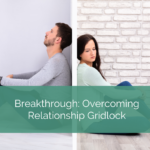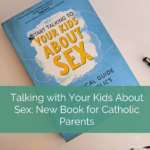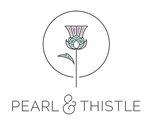
Breakthough: Overcoming Relationship Gridlock
August 24, 2023
Sex Ed: Book for Catholic Parents
November 30, 2023Birth Control: Why is it Bad?
Every so often— about once a month, on average— I get an email or a message on social media asking me about the resources I have which discuss how bad birth control is.
My answer? None.
Not really.
I mean, I have a parent resource which accompanies Cycle Prep that explains how synthetic hormones (like the ones found in birth control pills and patches) come with significant risks which must be discussed and weighed with your doctor to determine whether the treatment is appropriate.
I have some slides in my "Human Love in the Divine Plan" presentation which show the difference in hormone patterns between natural cycles and artificial cycles in which synthetic hormones override and replace that natural function.
In my Cycle Charting for Single Women book I bemoan the state of women's healthcare in which natural, healthy cycles are regularly replaced with fake periods.
But as a general rule, I don't offer materials that explain all the research we have which suggests that replacing your natural hormone cycle with a synthetic one is a bad idea. I don't talk about risks of cancer or blood clots, or how suppression of ovulation can contribute to partner choice. There's still a lot to explore and understand about the risks of environmental estrogens, some of which can come from hormonal contraceptive use. There's a lot to be said on the issue. But I don't tend to focus on it.
Why not? Partly because so many other people have already done this, and they do it well. Go buy their books. Read their blog posts. They are amazing. I'll list them at the end of this post.
It's also partly because I have a serious concern that by focusing on telling people what NOT to do because it's bad for them, well-meaning Catholics are doing to NFP what "toxic purity culture" did to chastity. In other words, we're in the business of scaring people so badly that we forget to proclaim the good thing we are trying to get them to choose instead.
But ultimately, I don't talk about it that much because the Church's moral teaching on birth control depends approximately ZERO PERCENT on the nasty side-effects of birth control pills. The way the Church sees it, those are just the natural consequences of the sin of hubris— or, being so arrogant that we think we could design our reproductive systems better than God. Those natural consequences suck. But it's less important to talk about the consequences than it is to talk about why we shouldn't aspire to hubris in the first place.
Think about it this way: even if birth control were 100% risk free and had zero negative side effects for health... the Church would still not condone it as a legitimate means of family planning. This is because the Church's prohibition against contraceptives and what Janet Smith likes to call "interceptives" — like barriers or douching — is rooted in the moral evil which is exercised when we try to circumvent God's natural design for our bodies.
This is why NFP can't simply be boiled down to non-hormonal family planning. It has to be accompanied by discernment, prudence, and a huge dose of humility. And it's also why birth control pills, despite the medical risk, can legitimately be used by Catholic couples for symptom relief through the principle of double effect. It's certainly a difficult tension to try and balance, but even with the inherent risks of synthetic hormone therapies (which can be VERY significant), we also have to stop shaming and scaring women who suffer greatly without their aid. As my husband repeats often to me about pretty much anything I try to do: "We can't let the perfect be the enemy of the good."
Now, let's get some caveats out of the way, here, because I know some objections are coming:
- Yes, I think that it's generally bad medicine to prescribe birth control to practically every woman for practically any reason you can think of. It's lazy, and our system needs a serious change.
- The lack of informed consent is also incredibly serious matter, and I think the vast majority of girls and women are never truly educated on the potential risks and side effects of common birth control. This is a moral and professional failing of the entire medical community.
- Yes, there are bioidentical options for hormonal therapies which could be better. For sure. But even with telehealth, these are not always accessible or practical options for women. We CANNOT shame women who opt for synthetic hormonal treatments because it makes more practical sense for them.
- We ABSOLUTELY must challenge the status quo and fight so that women around the world have better access to healthcare which honors them as whole persons, rather than treating their fertility as a "disease."
- There is ABSOLUTELY a need for the Church to explain the risks and consequences of using birth control, even for medical management of symptoms. The TRUTH must be proclaimed and if no one else is going to do it, the Church must speak up. But... that's not my role.
It's really difficult to wade in these waters of cycle and fertility education, trying to figure out what possible things to focus on as the world just descends into total topsy-turvydom about sex, fertility, and our basic sense of what it means to be "embodied" creatures. I've spoken with colleagues and friends who also do this work, and on one thing we all agree: You have to be really intentional about discerning what God has asked you to do, and what He is asking you to leave to others.
With respect to enumerating birth control risks, that choice was made abundantly clear to me when I was crafting my Cycle Prep program. Because research shows that girls who are adequately prepared with knowledge about periods and cycles will experience less anxiety and have a better experience of menarche than girls who aren't. It makes sense.
But I was baffled by our current model of sex education, which insists on lumping period education into a single discussion including sexual reproduction, pregnancy, and pregnancy prevention. Why are we focusing on those latter topics with 9-year-olds??? The fact that we find that to be a logical necessity was totally confounding to me.
So instead, I asked myself: "What if we just teach girls about the good, healthy function of their bodies as something worthwhile in itself? What if we don't start with reproduction, and instead teach them that this cycle of hormones is good and healthy for their bodies as they go through puberty?" I like to consider this approach to be consistent with what JPII says in his Theology of the Body about the importance of Original Solitude as a precursor to Original Unity. But that's a digression for another time...
My Socratic training led me to think that if we instilled girls with all of the positive information about the important function of their menstrual cycles, they would naturally intuit the health risks of voluntarily shutting that down. In addition to having my own daughter as a positive case study, I can now also say that other parents have told me similar stories. I have heard that after going through Cycle Prep, girls who subsequently learn about contraception immediately pick up on the fact that shutting down ovulation is probably not a good, healthy decision. Do I have research to show the longterm success of such an approach? No, I don't. But I have mounting anecdotal evidence which suggests that girls are wicked smart — and if we take the time to focus on the goodness of their bodies, they'll be able to see through the lies without us needing to tell them. I want to focus on that.
Which isn't to say we shouldn't tell them. Parents, educators, doctors, and the Church absolutely should be clear on these matters.
But Pearl & Thistle is one little voice in a sea of beautiful, courageous, truth-speaking voices. And if you were hoping I'd do more to focus on the risks... I will take that as a compliment that you'd find my take on these issues to be of benefit! But instead of trying to do everything, I'd love to point you towards others who can help you with articulating "Why Birth Control is Bad" from a risks-standpoint.
So, consider THIS blog post to be my contribution to that conversation. It's going to include both Catholic and secular resources, so just be aware that not every suggestion will present a consistent vision with the Church's teaching (I'll mark the ones that are consistent with Church teaching with a *) and not all of these resources are JUST about risks. But their voices are necessary and helpful in making the case for natural family planning, none the less. I hope that you find exactly what you're looking for!
(also this is not exhaustive. Feel free to comment below to add YOUR suggestions for great resources, too!)
BOOKS
- *Marie Anderson, M.D.: "Contraception" in the book Breaking Through: Catholic Women Speak for Themselves
- Lara Briden: Period Repair Manual
- Jolene Brighton: Beyond the Pill
- *Mary Eberstadt: Adam and Eve After the Pill, Revisited
- Lisa Hendrickson-Jack: The Fifth Vital Sign
- Sara Hill: This is Your Brain on Birth Control
- Elisabeth Raith-Paula, M.D.: What's Going on in My Body? (This one comes SO close to being in line with Catholic principles, but falls short on concluding discussions about sex)
- *Janet Smith: Why Humanae Vitae is Still Right
WEBSITES, BLOGS & PODCASTS
- The Business of Birth Control
- *FAbMBase: "How Hormonal Birth Control Works"
- *FACTS Blog: "Amplified Risks from Contraception for Teens - But Can They Chart?"
- *Hormone Genius: The Lesser-Known Side Effects of Birth Control
- *Managing Your Fertility: "What are the Side Effects of Hormonal Contraception?"
- *Natural Womanhood: query- "Risks of Birth Control"
- *Janet Smith: "Contraception: Why NOT"
- *Bill Williams via St. Augustine Foundation: Risks of Hormonally Active Contraceptives
- *USCCB: feature page on "Contraception"
❤️ Loved this post? Be sure to subscribe to the Body Lit Library weekly newsletter, where every Thursday you'll get access to new content, updates, and special insider offers!
📚 Want to learn more? Check out our lifelong body literacy education courses and books, from puberty through perimenopause and everything in between: pearlandthistle.com


